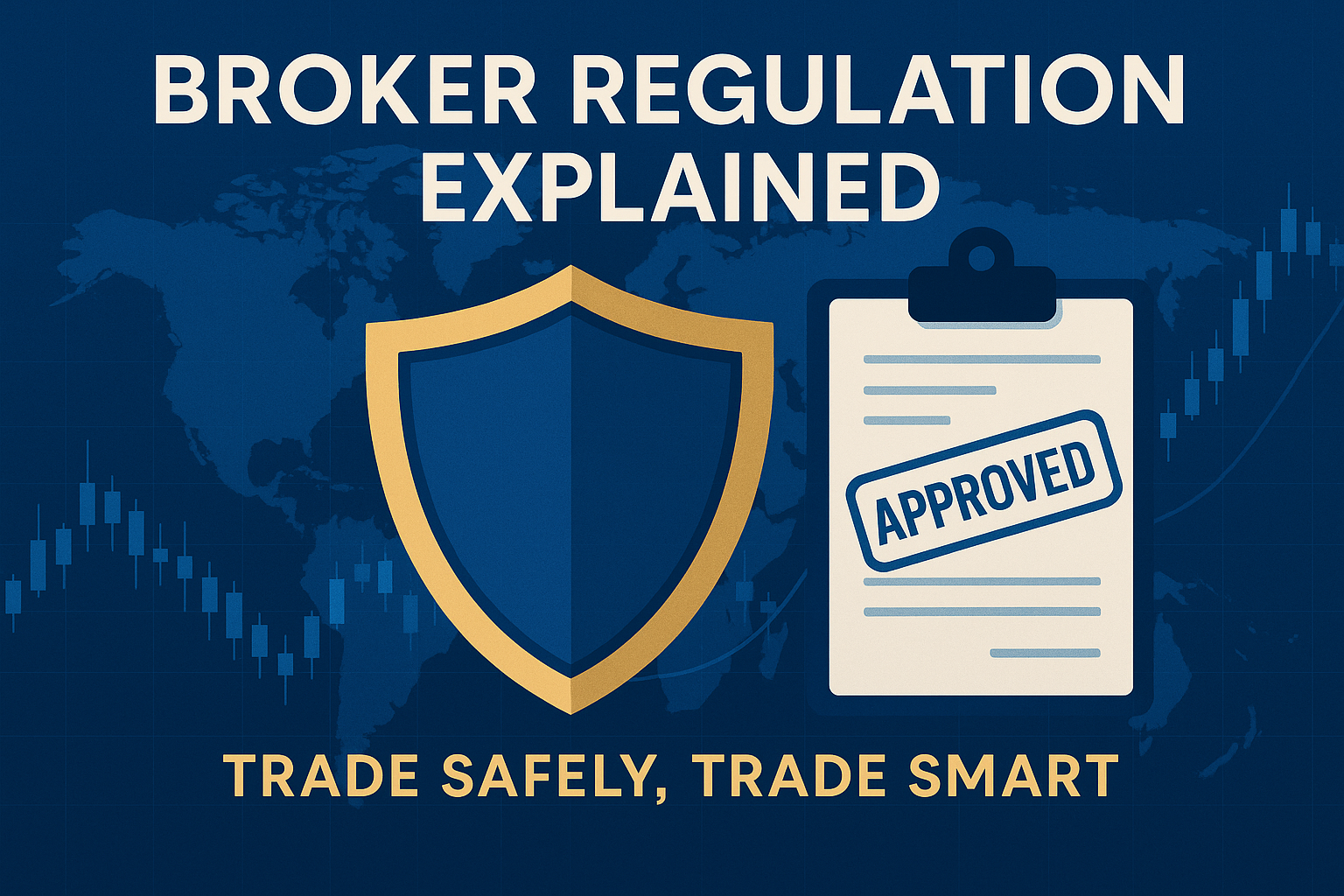When choosing a forex broker, one of the most critical factors to consider is regulation. Broker regulation refers to the oversight and supervision of forex brokers by official financial authorities to ensure they operate fairly, transparently, and in full compliance with established legal and ethical standards.
The main goal of broker regulation is to protect traders and investors from fraud, malpractice, and financial mismanagement. Here’s what every trader needs to know.
Key Aspects of Broker Regulation
1. Licensing and Compliance
A legitimate forex broker must obtain a license from a recognized regulatory authority. This process involves meeting strict criteria such as:
- Maintaining a minimum capital threshold
- Implementing proper risk controls
- Following ethical business practices
Regulators conduct routine audits, monitor operations, and can suspend or revoke a broker’s license if violations occur.
2. Investor Protection
Regulated brokers are legally required to segregate client funds from their own business accounts. This protects client deposits if the broker becomes insolvent. Many regulators also enforce negative balance protection, ensuring that traders cannot lose more money than they have deposited.
3. Transparency and Reporting
Transparency is a cornerstone of regulation. Licensed brokers must clearly disclose all relevant trading details, including:
- Fees and commissions
- Spreads and leverage ratios
- Risk warnings
They are also required to submit regular financial and operational reports, enabling continuous oversight by regulatory bodies.
4. Dispute Resolution
When issues arise, regulated brokers are accountable. Most regulatory agencies provide formal dispute resolution services, acting as intermediaries between traders and brokers to ensure fair outcomes in cases of complaints or misconduct.
Major Global Regulatory Bodies
Different regions have their own well-established regulators that uphold strict standards. Here are a few of the most respected:
- United States – Commodity Futures Trading Commission (CFTC) and National Futures Association (NFA)
- United Kingdom – Financial Conduct Authority (FCA)
- Australia – Australian Securities and Investments Commission (ASIC)
- Japan – Financial Services Agency (FSA)
- South Africa – Financial Sector Conduct Authority (FSCA)
Why Broker Regulation Is Crucial for Traders
Working with a regulated broker significantly reduces your exposure to risk. You gain peace of mind knowing the broker:
- Follows industry best practices
- Has financial safeguards in place
- Is accountable to an independent authority
To confirm a broker’s regulatory status, check their licensing information on their website and cross-verify it with the official regulator’s database. This simple step can help you avoid scams or unlicensed firms posing as legitimate brokers.
Final Thoughts
Broker regulation is more than a legal requirement—it’s a trust-building mechanism that creates a safer, more transparent trading environment. For any serious forex trader, choosing a regulated broker should be non-negotiable. It ensures you are protected by law, supported by reliable practices, and trading in a secure ecosystem.
When evaluating brokers, always start by verifying their regulatory status. Your capital, data, and trading future depend on it.
